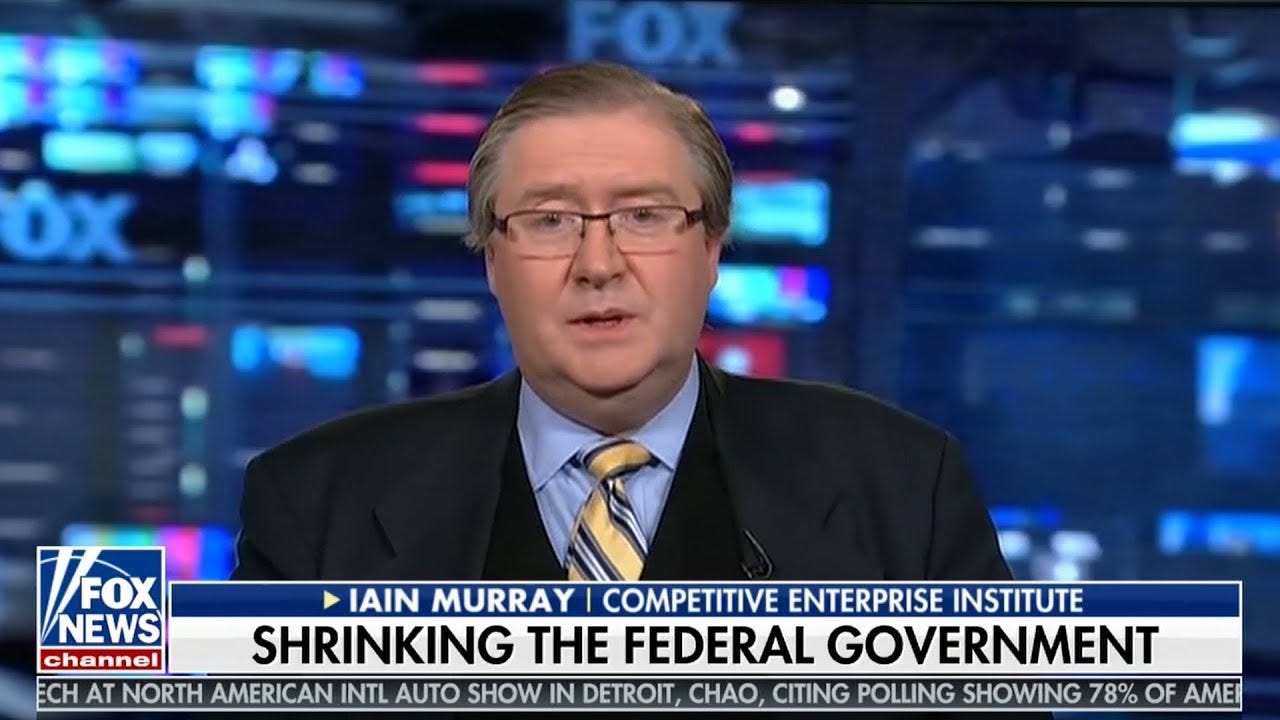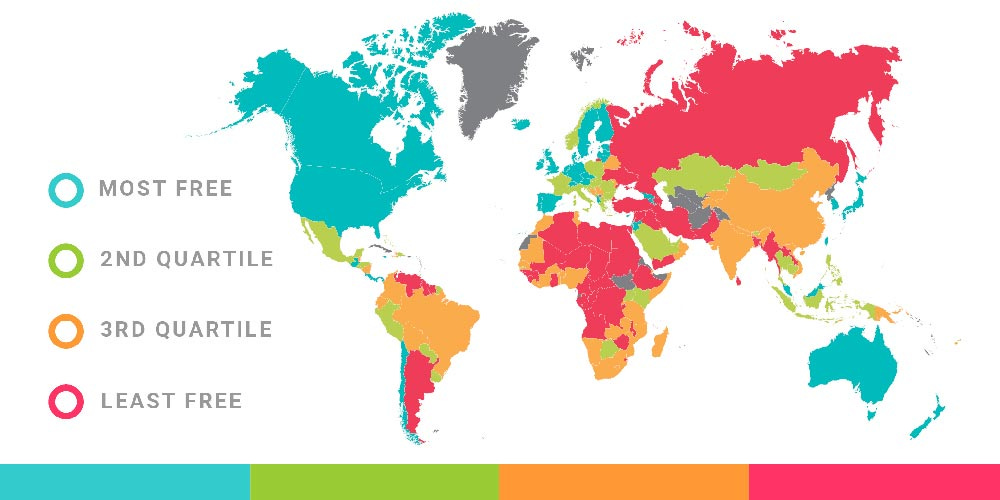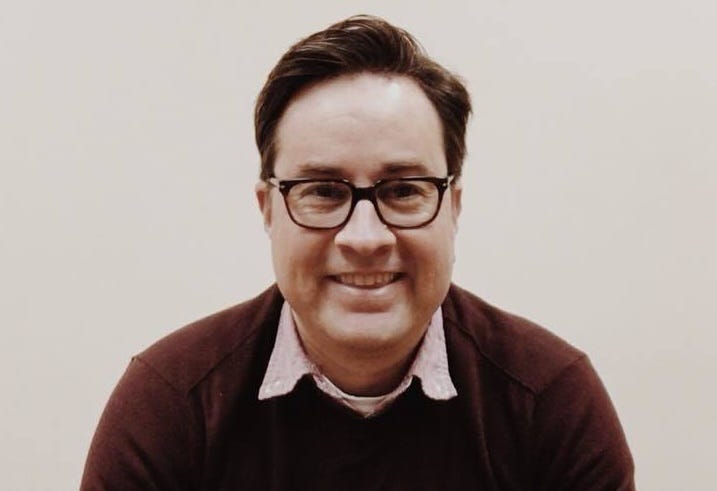Dividing line
What separates FreeCons from NatCons — and why America’s future is at stake
Why can you all just get along?
We get that question a lot around here. As a movement devoted to building an American Right that can both win electoral majorities and sustain governing majorities, Freedom Conservatism prefers to make new friends, not nurse old grievances.
So why, then, do FreeCons spend some of our time defining our differences with National Conservatives and other segments of the Populist Right? Why don’t we devote all our energies to combating the Progressive Left?
Because we believe what we said in the Freedom Conservatism Statement of Principles. We believe our country cannot survive and thrive without embracing “the distinctive creed that made America great: that individual liberty is essential to the moral and physical strength of the nation.”
Many prominent populists and progressives do, indeed, reject that creed. They care little about Washington’s profligate spending and chronic deficits. They welcome presidential interference with private markets and relish the prospect of government ownership of private companies. They defend freedom of speech for themselves while denying it to their opponents.
We can have productive conversations with populists and progressives, of course, and work with them on specific issues of mutual interest. But we cannot form a common movement with them, even with those who claim the “conservative” label. Both philosophical and practical considerations prevent it.
FreeCons advocate limited government, free enterprise, pluralism, civic virtue, and the decentralization of power. To compromise these principles for the sake of fleeting political advantage would render our movement incoherent and ineffective.
Moreover, if making common cause with the Populist Right means accepting as allies those who would strip women of the right to vote, prep for some fantasized “national divorce,” tolerate ethnic grievance and bigotry, attempt to integrate church and state, or blame Israel agents for the assassination of Charlie Kirk, Freedom Conservatives will reply — no, we will shout — ABSOLUTELY NOT.
Any version of the American Right that includes such demagogues will suffer policy reversals, electoral disaster, and, in the long run, political irrelevancy. It will be a fate well-deserved.
Today we feature the work of FreeCons who champion our country’s founding principles against all competitors.
Nomos v. telos
Iain Murray is vice president for strategy and senior fellow at the Competitive Enterprise Institute and a FreeCon signatory.
Director of the Center for Economic Freedom, Murray is the author of the bestselling books The Really Inconvenient Truths, Stealing You Blind: How Government Fat Cats Are Getting Rich Off of You, and The Socialist Temptation.
In a recent piece for the American Institute for Economic Research’s site The Daily Economy, he pointed out conceptual flaws in the familiar Left-Right paradigm. What increasingly explains today’s politics is “the role of identity and the nation.”
The divide between National Conservatism and Freedom Conservatism “isn’t between nationalist and non-nationalists,” he wrote, for “both camps believe strongly in the nation. It is, to use philosopher Michael Oakeshott’s distinction, between “teleocratic and nomocratic visions of the state.”
“The National Conservative generally believes that the state has a unifying purpose, whether it be to promote the interests of the American worker above all else, to preserve American communities by restricting immigration, or to promote the ‘common good’ in morals and the economy. All these are teleocratic ends.”
Freedom Conservatives, however, generally “believe that the state should set the rules of the game and allow civil society, enterprises, and associations to pursue their own ends,” Murray continued. “For this, of course, they are castigated by their erstwhile friends for believing in ‘neutrality’ and not using the levers of the state for their own power.”
“That would be anathema to the nomocrat, but it is seen as an essential weakness by the teleocrats. So, while nomocrats insist that the power to tax is one reserved to Congress and cannot be delegated away, the teleocratic right insists that Congress hid the elephant of tariff power in the mousehole of the International Emergency Economic Powers Act, and to say otherwise would ‘destroy’ the country.”
Freedom delivers
Robert A. Lawson is the Jerome M. Fullinwider Centennial Chair in Economic Freedom and director of the Bridwell Institute for Economic Freedom at Southern Methodist University. He’s also a FreeCon signatory.
Lawson has authored or co-authored over 100 academic publications. With Benjamin Powell, he is co-author of Socialism Sucks: Two Economists Drink Their Way Through the Unfree World.
He’s also a founding co-author of the annual Economic Freedom of the World report. Its most recent edition, just out from the Fraser Institute, contains not only updated rankings for 165 countries but also powerful evidence that economic freedom promotes growth, opportunity, and human flourishing.
Comparing the freest quartile of countries to the most-oppressive quartile, Lawson and his authors found that:
Average incomes are 6.2 times greater.
The bottom 10% of incomes are 7.8 times greater.
People tend to work seven fewer hours each week.
People live about 17 years longer.
Far fewer children die in infancy.
People are more satisfied with their lives.
Governments are less corrupt.
Environments are cleaner.
Messy marathon
Christian Schneider is a National Review contributor and writes the Anti-Knowledge newsletter. He is also a FreeCon signatory.
A co-host of the podcast Wasn’t That Special: 50 Years of SNL and author of 1916: The Blog: A Book of Humor, Schneider also serves as op-ed editor for the Pacific Legal Foundation.
In a recent National Review column, he rebutted arguments against the judicial principle of originalism from historian Jill Lepore, who claims that it has “killed the Constitution.”
“Progressives, knowing that a pliant court will simply invent new rights, have no use for the messy amendment marathon,” wrote Schneider. “Why bother spending decades pushing constitutional change through a politically divided country when federal courts can drag your issue over the line in the span of months?”
“To Lepore, the idea that words should mean what they say is ‘radical,’ but pulling a never-before-contemplated national right to abortion out of the clouds is simply ‘rights-protecting.’”
The constraint of originalism applies to all political actors, Schneider concluded, compelling them to accomplish their goals through formal legislation and constitutional amendment.
“Want to know why Americans haven’t amended the Constitution recently? It’s because they don’t want to. If enough people cared about passing a balanced budget amendment or if enough members of Congress felt their jobs were in danger unless they passed a gun control amendment, it would happen.”
“Sure, demographic changes and Americans self-sorting by party make that difficult. But as the saying goes, if you think it’s bad when the government acts too slowly, just wait until you see the damage wrought by a government that races toward change.”
In the mix
• In The Wall Street Journal, FreeCon signatory Samuel Gregg defended the H1-B visa program as good for American workers.
“Once you let the economic-nationalist genie out of the bottle, it’s difficult to stop it from enveloping the entire economy,” wrote Gregg, president of the American Institute for Economic Research.
“Adding an H-1B visa holder to the U.S. workforce isn’t a zero-sum game. Foreign workers with highly valued and often rare skills inject human capital and expertise into the U.S. workforce. This increases firms’ innovativeness and productivity.”
“In a saner policy environment,” these and other factors would “encourage American policymakers interested in stoking American employment and growth to expand the availability of H-1B visas and allow more foreign-born high-skilled workers into the U.S.”
• At American Habits, FreeCon signatory Ray Nothstine introduced a series on religious liberty with the observation that safeguarding it “depends not just on constitutional guarantees but also on the wisdom, responsiveness, and courage of local governments and state legislatures.”
The fact that Charlie Kirk was “a Christian engaged in vigorous debates and discussions in the public square should remind us of the need for an aggressive defense of the free society,” wrote Nothstine, senior editor at State Policy Network. “His violent murder should jolt us into recognizing that freedom is not self-sustaining. It must be fought for with sharper resolve.”
• In The Washington Times, FreeCon signatory Richard Lorenc lamented how little young Americans know about the history of entrepreneurship and its contributions to American greatness.
“Just as the many innovations reshaping our world today (artificial intelligence, autonomous driving, ‘the cloud,’ drones, electric vehicles, social media) are powered by entrepreneurs,” wrote Lorenc, president of Lexandria, “the United States itself was founded and shaped by entrepreneurs, some of the most innovative political thinkers the world has ever known.”
“Although most entrepreneurs are celebrated for one big thing, entrepreneurs just as often make their marks by refreshing and improving earlier innovations. This can be seen in U.S. education today, where many of America’s most successful innovators — including the founders of the Knowledge in Power Program Public Charter Schools, the Great Hearts Academies and the Classical Charter Schools of America — built upon time-proven curricula (phonics-based reading, for example) and teaching methods to produce top-performing schools.”



